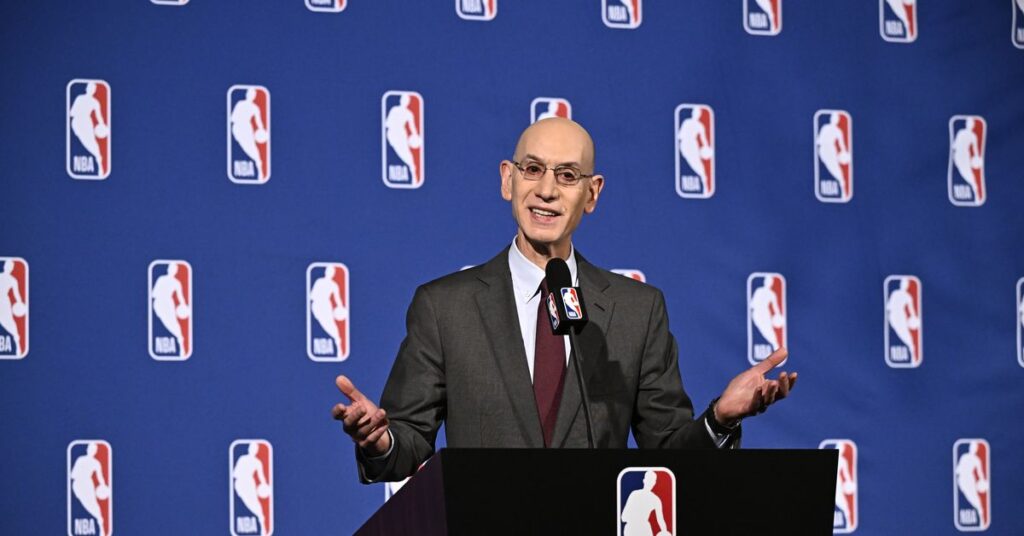The NBA's new media deals were always expected to be big, but no one anticipated just how enormous the financial benefits for the league would be: The Wall Street Journal reports that the deals with NBC, ESPN and Amazon are worth $76 billion over 11 years, shattering even the upper end of expectations.
That averaged out to just over $6.9 billion per year, a 265 percent increase over what the NBA was getting from Warner Bros. Discovery, ESPN, and ABC. TNT's parent company and Disney were paying a combined $2.6 billion per year to air NBA games. The Warner Bros. Discovery deal was part of an uninterrupted agreement inked with TNT in 1988, when cable television was in its infancy. The new deal marks the first time the NBA has moved to a new network in nearly 40 years, but as fans lament, it also marks the end of a legendary NBA. Behind the scenes of the NBA Because the talent already has a contract with Warner Bros. Discovery.
Warner had hoped it could find a way to keep its NBA programming, but the price tag ended up being too high: The three biggest US conglomerates vying for the rights — Comcast (NBC), Disney (ESPN) and Amazon — all have deep pockets that Warner Bros. Discovery can't possibly match.
At this time, it's unclear how the matches will be split or what agreements each proposed interested party has to broadcast the games. Additionally, it's still unclear how the business element of the NBA will work. NBA League Pass Or local market games will be governed under the new agreement, but one thing is clear: the player is about to benefit in a way he's never seen before.
Under the collective bargaining agreement with the NBPA, players are set to receive 50% of the media contracts, which run through the 2029-30 season. It's important to note that funds from the new TV contract won't count toward the salary cap until the 2025-26 season, at which point they will increase by 10% each year of the contract's life.
This means that while the salary cap for next season is already set at $141 million, it will rise to $170 million three years from now, and $206 million two years after that. This has a big impact on contracts, especially supermax contracts in the NBA, which are the most common way for superstar players to stay with their current teams. One of the most notable recent supermax contracts is Jaylen Brown of the Celtics, and here's how his contract compares to what will happen after the salary cap increase:
- Jaylen Brown: 5 years, $304 million
- 2028-29 free agency: Five years, $419 million
And that number is set to continue to grow: Brooklyn Nets general manager Sean Marks told the New York Post that he expects the value of these supermax contracts to exceed $100 million per year through 2032, thanks to new media rights deals. That figure easily exceeds the $70 million Shohei Ohtani is making with the Dodgers and far exceeds Joe Burrow's contract, which has the highest average annual value in the NFL at $55 million.
While estimates are currently on the low side, the NBA's unprecedented popularity internationally means new global rights deals are likely to push salaries even higher.
Who will be the NBA's first $100 million man? It's still early, but I'd put Victor Wembanyama on the list. Wembanyama's rookie contract runs through 2026-27, at which point he'll likely sign a five-year supermax contract. That contract is set to extend beyond 2032-33, right when he's expected to hit the magic number.
The future of the NBA is incredibly bright, with players destined to become some of the highest-paid athletes in NBA history.

